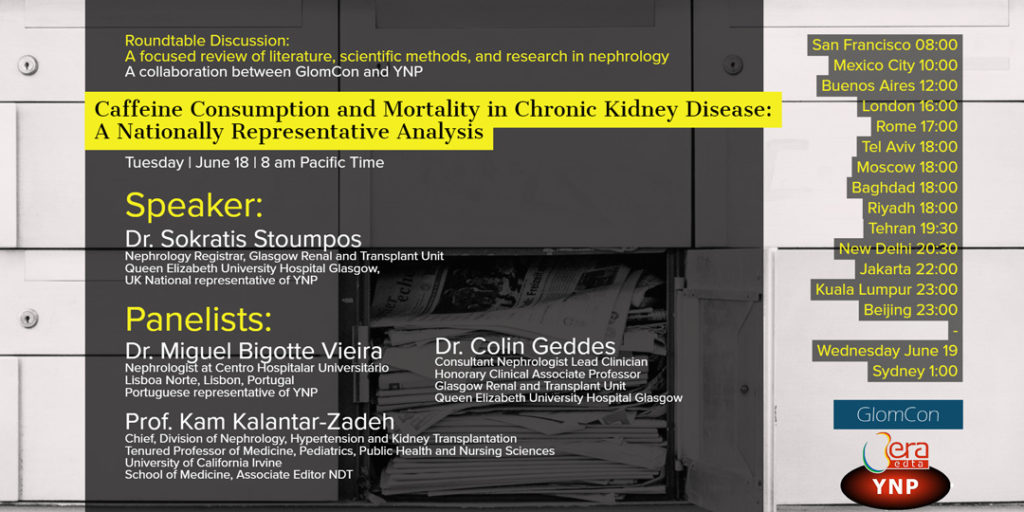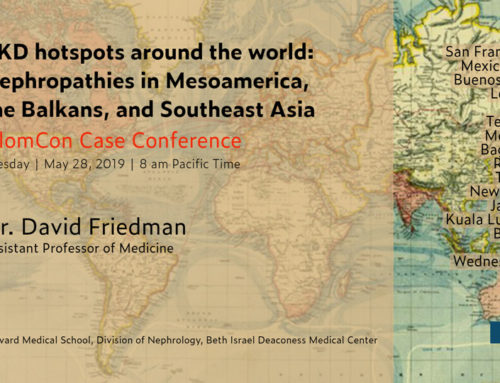CHRONIC KIDNEY DISEASE
Caffeine Consumption and Mortality in CKD
In this collaborative roundtable discussion among colleagues from the Young Nephrologists’ Platform of the European Renal Association – European Dialysis and Transplant Association (ERA-EDTA YNP) and GlomCon, Drs. Stoumpos, Vieira, Kalantar-Zadeh, and Geddes reviewed a very interesting study by Dr. Vieira et al. on the association of caffeine consumption and mortality in people with chronic kidney disease. Our Moderator’s Notes are derived from their live presentation.


By Dr. Jessica Lapasia
Nephrologist
The Permanente Medical Group
Key points:
• Observational studies have shown an inverse relationship between caffeine consumption and all-cause mortality in the general population.
• Today’s discussion focused on a study titled “Caffeine Consumption and mortality in chronic kidney disease: a nationally representative analysis” published by Dr. Vieira and colleagues in NDT September 2018. (reference #1)
• In this analysis, the authors studied 4863 participants from the NHANES database with CKD stages 1-4 and showed a lower mortality risk to be associated with the self-reported caffeine consumption across stages of CKD (analysis excluded patients with CKD 5/ESRD). Various subgroup analyses and statistical tools used in this study were reviewed during the discussion.
• Although this study shows an association between caffeine consumption and lower all-cause mortality in this population, it is unable to speak to causation due to potential confounders, which were discussed during the session.
• There are several hypotheses for a potential mechanism of action including possible antioxidant and vasodilatory effects. (reference #5)
• Members of the panel commented that caffeine use might be a marker of better overall health as participants with certain medical conditions may naturally consume less caffeinated beverages.
• This study provides important insights and observations to guide our nephrology community. As an observational study, it will help the development of important hypothesis and design of future prospective trials to guide recommendations for clinicians and patients regarding caffeine consumption.


